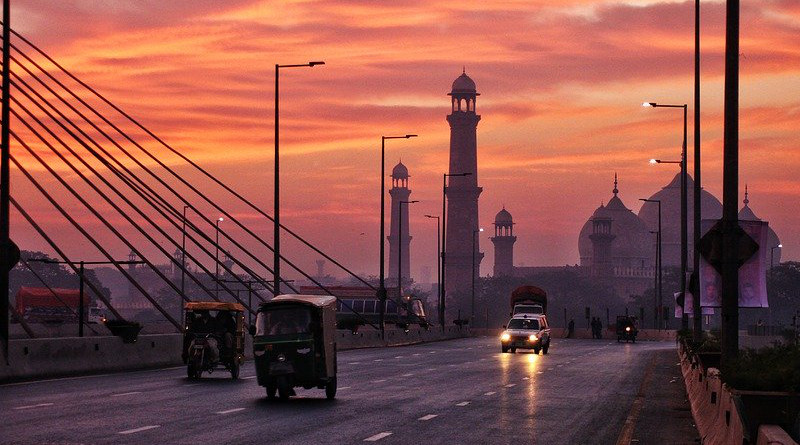The Soft Power Of Pakistan – OpEd
By Ali Abbas*
Soft power in international relations matters, soft power describes the use of positive actions and motivation to achieve foreign policy goals. Instead of traditional foreign policy tactics of use of force, threat to use of force and deterrence, soft power enables states to build narratives and shape the world opinions to about the soft image of the country. The concept first originated by the renowned political scientist Joseph Nye, describes main sources of soft power as a cultural enrichment, political values, and foreign policy.
Pakistan being a developing country always contributing for international peace, stability and security. For this purpose Pakistan has cooperated with United Nations peace keeping missions in different places of the world. Pakistan is an important member of UN and contributor to the UN peace keeping missions and activities. Pakistan is also an active and leading member of Economic and Social Council can also make a significant contribution. United Nations is a global organization consist of strong and sovereign nations from all over the world. UN equally provides opportunities to all countries to participate in peace keeping missions.
Pakistan has developed its soft image by cooperating with United Nations, and other international actors for peace and security. The role of Pakistan’s in UN peacekeeping missions has much improved the country’s soft image globally. Pakistan’s participation in these operations have clearly indicated the professionalism of its military in the world. The Pakistan’s Military personals have taken the parts as an effective force to establish law and order, to ensure peace in Somalia, Bosnia and other unstable regions in the world also supporting the UN officials in Namibia etc. These operations for peace and stability has built the national respect, self-esteem and enhance its role in international relations. Pakistan’s military has gained much experience in humanitarian operations globally as well as regionally. The important guiding principle in UN peacekeeping mission is professionalism and neutrality. Pakistan always encourages international cooperation, stability and security. The contribution of Pakistan always welcomed by the officials of United Nations, and they acknowledge in different forums.
Pakistan’s peacekeeping missions involved in ensuring peace and establishing protocols to protect the civilian population in unstable regions. The military personals also helping to deliver the UN humanitarian aid to the people in war zones. Pakistan’s peace missions have performed different tasks, risky and sensitive operations to protect the lives of innocent people in different regions. Even Pakistan’s troops lost their lives during an operation in Somalia decade ago, but Pakistan never back its support and cooperation with United Nations. Hence, it is evident that Pakistan is keen in peace and stability, always respected the international law, cooperation with international institutions. The Pakistani government and people are proud of its contribution to UN peacekeeping operations over six decades. The members of peacekeepers have earned much respect and helpfulness for their professionalism and dedicated to duty in every mission for global peace and security. Dr. Maleeha Lodhi, Pakistan ex, representative to the United Nations has lead UN peacekeeping missions over five decades. She said that Pakistan feels proud to contribute to the several UN peacekeeping operations. Its decisive role in International institution is one replication of Pakistan’s commitment to maintenance of global peace and security.
Pakistan needs to improve its domestic and international performance to prove the soft image of the country. So far Pakistan is trying to promote its soft across the world through national and international media tools. In my opinion, Pakistan can easily catch its active role in UN peacekeeping missions. The acceptance from United Nations, and from global great powers can help to improve its soft power globally. In the era of 21st century, the era of globalization where multinational organizations and non-governmental organizations plays the crucial role. The democratic institutions are getting stronger every day and state institutions are developing a system of accountability the essential part of democracy. The military has defended the country and bravely contribution towards global peace with UN and also helping in the infrastructure development and humanitarian relief. Pakistan is rich in cultural diversity and extremely different interesting cultures, so projection this cultural diversity through media and also though international cultural institutions can show the soft and appealing image of the country.
Pakistan must struggle to increase its soft power in the world and work for the positive and humanitarian purposes to change the international narratives. Through peace missions and operations it’s a good opportunity to show the country’s diversified culture and one of the world’s oldest civilization. The Pakistani missions also include the female military personals which reflects the country’s commitment and improving the soft power. Pakistani women peacekeepers have also made invaluable contributions towards peace, passion and commitment of brave and patriotic Pakistanis is strong. UN Sectary general Antonio Guterres said “Pakistan is among the top contributors to UN peacekeeping. It was inspiring to some of the brave women and men who are serving for peace around the world. Thank you for service and sacrifice.” Pakistan people always respect the international institutions working for peace and development. Hence improving soft power through culture values, contributing to the global peace and development is an important factor in foreign policy.
*Ali Abbas, PhD Scholar at the School of Politics and International Studies. (SPIS) Central China Normal University. He earned his M.Phil degree in International Relations from National Defence University Islamabad, Pakistan. His Ph.D. research focuses on the Strategic triangular relationship between Pakistan-China and the USA in the 21st century. His research area of interest further includes South Asian studies, Extremism, and terrorism, foreign policy of great powers. He frequently writes articles on different topics in international and local media sources. He writes in China Daily, Modern Diplomacy, Eurasia Review, and Always CCNU Magazine.

